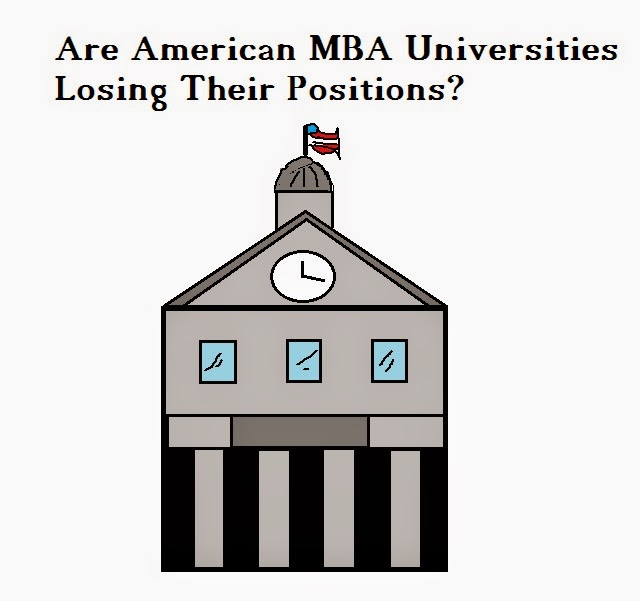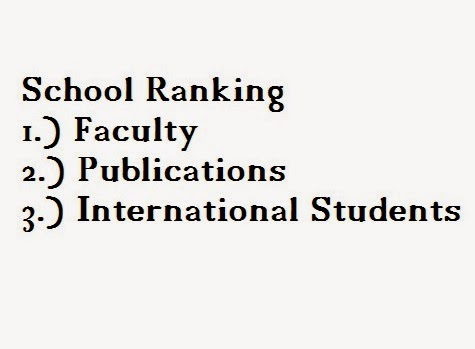 U.S. schools have long been known
as a place where higher education excels. Over the past decade European and
Asian MBA schools have started to take preference and superseded many American
schools. A study by Collet & Vives (2014) discusses how the face of the
American university has changed and why European and Asian schools are starting
to reach top spots in business education.
U.S. schools have long been known
as a place where higher education excels. Over the past decade European and
Asian MBA schools have started to take preference and superseded many American
schools. A study by Collet & Vives (2014) discusses how the face of the
American university has changed and why European and Asian schools are starting
to reach top spots in business education.Business schools have not always been part of the American landscape like many other programs. By the 1980’s MBAs were in hot demand and graduates could expect to earn around 2X what the average person earned in the country. The MBA is, and was, a significant sign of achievement among academics, and holding a degree from one could lead to faster promotion and higher pay.
As the interest on MBA grow so
did the interest of business oriented media that desired to rank the schools
for their readers. Publications like the Financial Times used three criteria to
rank Global MBA schools by 1. Faculty demographics; 2. Publications faculty
product; and, 3.) the amount of international students. Each measurement lends some support to the
interest and quality of the school.
Faculty publications help understand
what is being produced within a school and how it is contributing to the
intellectual capital within its field. When faculties are publishing new
findings and material they are growing and developing the intellectual knowledge
of their related interests of study. Students are naturally attracted to producing
faculty.
The other measurement is the
amount of foreign students attracted to particular schools. As an MBA increases
in market value international students are drawn to such colleges in order to
give themselves the best advantage they can within the market. A strong
reputation furthers that interest and draw interested parties through its high
quality degree programs.
The authors found that the U.S.
is losing its prestige in business education.
More Asian and international students are migrating to Europe to earn
their degrees. Graduates of these schools are earning high wages compared to
the general population. This is occurring despite the higher economic growth
rates within the U.S. that should be a draw for students seeking an education
and an opportunity.
Collet, F. & Vives, L.
(2013). From preeminence to prominence: the fall of U.S. business schools and
the rise of European and Asian business schools in the Financial Times Global
MBA Rankings. Academy of Management
Learning & Education, 12 (4).
